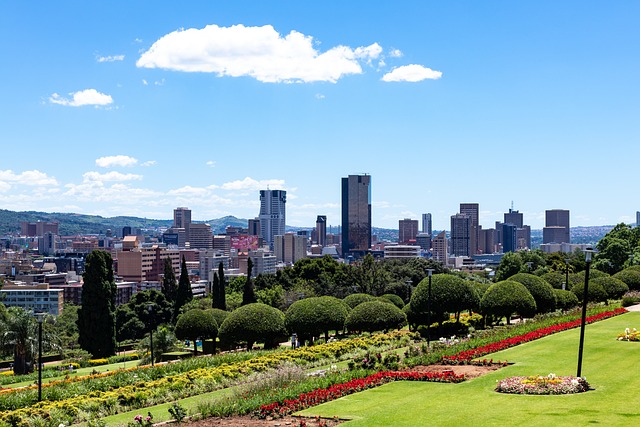Tshwane — The City of Tshwane MMC for Housing and Human Settlements, Aaron Maluleka, said the city is concerned about the growing number of informal settlements that have popped up in the metro.
In an interview with Newzroom Afrika, Maluleka explained that a development project is currently underway that would help people waiting for houses in informal settlements.
“We are developing service stands in Camel Park and Gangala and we are looking to develop over 2 000 stands for the community there. We will make sure they will get title deeds and we are working in partnership with the City of Tshwane,” he said.
Once all the sites have been developed, beneficial administration will be done to ensure the people will be able to live in developed spaces.
He said the department wants to deal with backlogs for people who are waiting for their own sites and living spaces.
Tshwane MMC for Housing and Human Settlements, Aaron Maluleka said there are unscrupulous people selling land to desperate families. The land barrons also make money through illegal connections of electricity and water.
“We are dealing with a rapid growth of people that need to have land spaces. In the process, we are also having people who are taking advantage of the poor. We have what we call informal townships. If you drive around the city here, you find people living in developed houses but these are not people living in proclaimed areas. Someone came in and sold stands for R30 000 or R50 000 and they develop expensive houses,” said Maluleka.
He said once people are staying in those informal townships, they rely on stealing utilities like water and electricity through illegal connections.
He said the responsibility falls on the government to ensure that such issues are resolved. He explained that the government cannot deal with individuals who undermine government plans, as it increases backlogs.
“We have an obligation in terms of our Constitution, section 26 dictates that we must provide for people that are living in these informal settlements. We have taken it upon ourselves to take a by-law to Council that will assist us in prohibiting, also to discouraging people that would then want to enter our sites and invade them. We want to work with them, throw them into our masterplan that shows areas that we want to develop,” said Maluleka.
“At the end of the day, we are spending R300 million on water tankers, and we are spending R60 million on chemical toilets in a financial year. This is not sustainable in terms of our financial situation,” he added.
He said it was important to work with people who require government intervention as people have been deprived of the opportunity to live in developed spaces.
He added that the city is working with Minister Majodina to fix the water crisis issue in Hammanskraal and has provided assistance to develop a package plan.
“We have launched the project but we are still dealing with ensuring that the water that is going to come out of those pipelines is consumable and people are going to get water. We have made progress, big strides on the development, but the ministry will make an official announcement on when the people will get clean water from their taps,” he added.
Follow African Insider on Facebook, Twitter and Instagram


